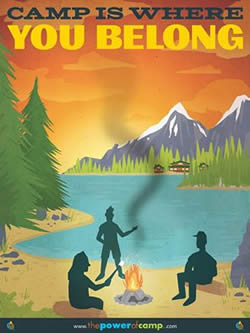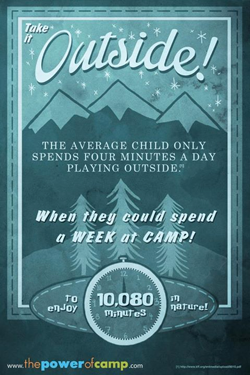
When kids return from summer camp, they might be able to teach their parents a thing or two. Yes, they will have learned fun games, traditional camp songs and how to adjust to new routines. But today’s campers also learn a lifelong lesson that campers in generations past never really needed—the benefits of a digital detox.
According to the American Academy of Pediatrics, kids ages six and older should have limits set on their media use. In addition, parents should also monitor their own media consumption. “Young children can tell when their parents’ heads are always in their cells,” Dr. Yolanda Reid Chassiakos says. “The lack of attention from a parent can make ‘kids’ levels of irritable behavior worse.’”[1]
So when kids go to camp, they get to experience hours of fun without technology vying for their attention or the attention of their youth leaders or camp staff.
At camp, cabin mates, dining hall buddies and camp counselors contribute to increased face-to-face interactions helping kids develop deeper friendships. Kids learn to communicate with peers their own age and trusted adults—a skill they will continue to refine throughout their lives.
Camp offers plenty of activities to get campers moving and have real-life fun. Instead of sitting on the couch being entertained by TV, movies or mobile devices, days are spent playing tag, swimming or zip-lining.
If screen time is swapped for a mix of exciting activities, meaningful conversations and lasting friendships, kids can experience a healthier way of life. A lesson parents can learn, too.
[1] http://www.cnn.com/2016/10/21/health/screen-time-media-rules-children-aap/index.html
















 INSTAGRAM
INSTAGRAM FACEBOOK
FACEBOOK TWITTER
TWITTER YOUTUBE
YOUTUBE